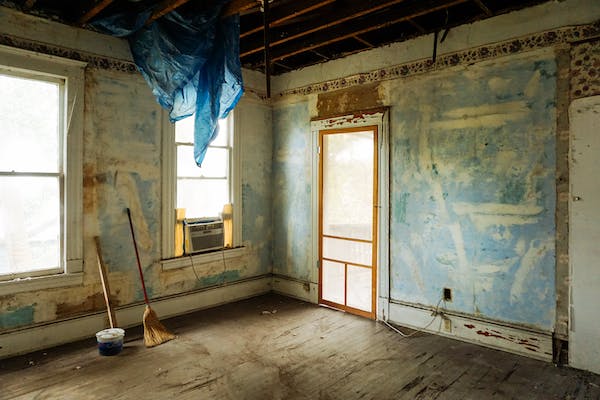The mortgage application process FAQs
How long does a mortgage application take?
The average length of a mortgage application in the UK is six weeks once the paperwork has been submitted to the lender.
Is the mortgage application different for first-time buyers?
First-time buyers have access to some government-based schemes and other advantages that can help them get on the property ladder and involve an extra layer to the application, but the overall impact on the application process is low.
Read our comprehensive guide to buying your first home for more information.
Why use a mortgage broker?
Visiting a single building society, high street bank or other mortgage lender means being restricted to the deals provided by that lender. At The Mortgage Hut we have a relationship with almost 100 different mortgage providers and when we work with you to get your mortgage, we are able to consider the best solution from thousands of mortgage products and deals.
By using a mortgage advice and broker service like The Mortgage Hut, you get access to that huge market of mortgage providers and products as well as the help from expert mortgage advisers with decades of experience in successful mortgage applications.
_____________________________________________________________________
Conveyance FAQ
Many clients have many questions about the conveyance process to understand what it compromises and how it affects them.
1. How long will it take?
The average time between instructing your solicitor and moving in is 10-12 weeks but many transactions proceed more quickly and some, more slowly!
2. What is a Conveyancing “chain”?
To avoid the risk and cost of owning two houses people usually elect to buy and sell simultaneously. A number of linked transactions therefore arise, each dependent on the other and exchange of contracts must take place simultaneously in all transactions meaning that the speed of progress is dictated by the slowest link in the chain.
3. How much will it all cost?
If you are selling you need to budget for estate agent’s fees and legal fees. If you are buying you need to budget for legal fees and disbursements. “Disbursements” are payments made by your solicitor to others, such as stamp duty, land registry fees and search fees. You also need to budget for lender’s valuation fees and your own survey fee.
4. When should I instruct my solicitor?
If you are selling speak to your solicitor before you put your house on the market. If you are buying make contact before making an offer.
5. When should I apply for a mortgage?
Do some initial research before you view properties. There are thousands of different mortgages on the market and you need time to find out which one is best for you. You can obtain a mortgage in principle from most lenders before finding a particular property.
6. When do I know the property is mine?
Once contracts are exchanged a legally binding agreement arises and neither party can back out. Until that point either party may withdraw.
7. What is the difference between “exchange” and “completion”?
A completion date is the date on which you move into your new property and vacate the old one. The agreed completion date is written into the contract and exchange of contracts is the point at which the seller and buyer agree to commit themselves unconditionally to the transaction.
8. What is gazumping?
Gazumping is where a seller accepts a higher offer before contracts are exchanged with the buyer. There is little that can be done to prevent a seller from gazumping although a lock out agreement can sometimes prevent this from happening.
9. What is a “local search”
It is a set of standard enquiries that your solicitor raises with the local council. It relates solely to the property itself and would not, for example, reveal proposals to develop or extend neighbouring land or property. The local council charge a fee “the local search fee” which your solicitor collects from you and pays to them when the search is done.
10. How do I find out if there are plans to building nearby?
Enquiries can be made with the local planning office to check whether planning permission has been granted
11. The builder has given me 28 days to exchange contracts. Can this be done?
Yes. Builder’s solicitors usually pre-package legal work and often the developer will allow you to exchange contracts conditionally upon the sale of your own property. Speak to your solicitors as soon as possible to agree a timetable for exchange.
12. Stamp duty
12.1. Can I save stamp duty?
It is possible to apportion the price between the bricks and mortar and the fixtures and fittings. There are a number of rules but the basic one is that any apportionment has to be an accurate reflection of the true price of the items involved.
12.2. What is the rate of stamp duty?
Property or lease premium or transfer value SDLT rate
Up to £125,000 Zero
£125,001 to £250,000 2%
£250,001 to £925,000 5%
£925,001 to £1.5 million 10%
Above £1.5 million 12%
You can calculate how much stamp duty will be due by using this link – https://www.tax.service.gov.uk/calculate-stamp-duty-land-tax/#/intro
13. Can I sell my property privately or via the Internet?
Yes. If you are selling via a property website check carefully as to the cost. Remember if you are also instructing a traditional estate agent you may have to pay the agent a fee even if the agent does not sell the property. Check closely on the terms of your agreement with the estate agent. Do you have to give notice to terminate it?
14. Do I pay Capital Gains Tax?
No. If it is your main residence that is sold you are exempt from Capital Gains Tax. If you own more than one property you can elect which property carries the exemption.
15. Do I need to have a survey?
If you are taking out a mortgage your lender will require a valuation but this is not a survey and is for the lender’s benefit, not yours. It is always sensible to have your own independent survey. Your solicitor can recommend a good local surveyor.
16. Can I avoid inheritance tax?
If you are buying a property jointly arrangements can be made so that you each benefit from inheritance tax exemption and this can help avoid paying tax on the value of the property once you die. Speak to your solicitor about a “nil rate band discretionary trust”
17. When must I insure the property?
A contract usually provides for you to insure on exchange of contracts. It pays to shop round for buildings and contents insurance and your solicitor can recommend a local insurance broker.
18. Can I have access as the property is empty?
Not automatically. Contracts normally stipulate that you only get the keys on the day of completion. If you want to have access to the property before that your solicitor needs to negotiate special arrangements for you.
19. Do I need to pay a 10% deposit when I exchange?
Not always. Although the contract provides for 10% of the purchase price to be paid on exchange, sellers often agree a lower deposit. This is a matter of negotiation. You can also usually use any deposit you receive on a sale as part payment of your deposit on the purchase. Your solicitor can advise you on the best way of minimising your deposit.
20. Can I let the property?
If you are buying with a mortgage you must get the consent of lender before letting your property. If you own a leasehold property you must check the terms of the lease to make sure that letting is permitted.
21. Can I extend my property?
There are sometimes restrictions in the title deeds which prevent extensions or require consent of another landowner. Larger extensions require local authority planning permission and any structural work will also need approval under the building regulations. Some areas are designated conservation areas and special planning restrictions apply which often prevent extensions. You should check these things before you commit yourself to a purchase.
22. Can I stay in my property after completion?
No. The contract provides that you must vacate on the day of completion and clear the property of all your furniture and belongings. If you do not give “vacant possession” the buyer may sue you for any loss and inconvenience caused.
23. What is a contract race?
This is where a seller offers the property to more than one buyer, usually on the basis that the first to exchange a contract will get the property. There is nothing illegal in running a contract race although if more than one contract is issued the seller has a duty to tell all parties that this is the case. If you lose out on a contract race you cannot claim your lost expenses from the seller.
24. Can the same solicitor act for seller and buyer?
Usually, no, but there are exceptions. For example, if a firm of solicitors have two or more offices it is possible for different offices to act for a buyer and seller.
25. The estate agent has asked for a “preliminary deposit”. Should I pay it and how much?
There is no legal obligation to pay preliminary deposits. It is merely a sign of “good faith”. Agents usually ask for between £100 and £250 which they will hold until the deal goes through. You are entitled to ask for your deposit back at any time.
26. When do I pay the agent’s fees?
Agent’s fees usually become payable once they have introduced a buyer who exchanges contracts for the purchase of your house. The agent’s commission is usually settled on the completion date from the net proceeds of sale of the house. Your solicitor will usually settle the fee on your behalf.
27. How do I deal with council tax and water rates?
When you have exchanged contracts you need to notify the local authorities and the utility companies that you have sold the property. Similarly you need to make application for these services at your new property.
28. How long does it take to clear my cheque?
Personal cheques usually need an average of a week to clear. It is usually possible for your bank to make a direct transfer which will avoid clearance times on personal cheques.
29. Do I have any comeback on my seller once I have moved in?
Generally no. If things do not work you will be liable. You should always therefore check that all appliances, central heating and other systems are in good working order before you commit to exchange of contracts. If damage has been caused to the property you may be entitled to compensation and if the seller leaves furniture or rubbish at the property he is in breach of contract because “vacant possession” has not been given.
30. Why have I been asked to provide proof of identification?
This is because all solicitors are required by law to check the identity of their clients to protect themselves against mortgage fraud or money laundering.
31. When do I get the deeds to my property?
Nowadays there are no “Deeds” as such as the legal documents of title are held electronically at the Land Registry. However there are a number of useful supporting documents which you should keep safe as they are required when the property is sold again.






